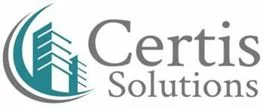The engineering field has several specializations and positions waiting to be filled by the right candidate. This abundance of jobs doesn’t mean the engineering job search is easy, though.
Since many people are also qualified for these roles, it usually falls to engineering staffing agencies to find the right fit. Candidates may find it tricky knowing where to look for the best engineering jobs. This confusion can be because the majority of job candidates aren’t well versed in marketing themselves and finding the best job fit for their skills.
The state of engineering in California
California is considered one of the best states for engineers. There are numerous job opportunities for candidates in the job pool. Whatever your specialization, expect the engineering industry to keep growing for the next few years.
There are fantastic career prospects for entry-level engineers and growth opportunities. It’s also noteworthy that the median salary for engineers in California is over $100,000 annually.
How to start the engineering job search process
Finding a job as an engineer shouldn’t be difficult as long as you position yourself appropriately. Before looking for the ideal engineering job, job seekers must have a few documents ready. Every candidate should have a well-constructed resume and cover letter.
Your resume should highlight your experience and qualifications (including your licenses). You can tweak these two documents continuously to suit the job description of each role you apply for. Customizing your application will increase your resume’s visibility out of the dozens of applications received for the same job.
There are abundant job opportunities whether you’re looking for an entry-level job as a graduate or a more experienced role. Here are four more tips to help you begin your search for the engineering job you want.
Take an internship
Not many people like the idea of internships, but they can be great for your career. Interning is one way to gain some experience, especially if you’ve just graduated. It will make your resume more appealing to employers. Learning about engineering in the classroom is different from real-world applications, so seeing how things work as an intern can be eye-opening. Internships can also prove you’re willing to work and learn.
Obtain a relevant license
You can get several qualifications to help improve your skills and stand out. They allow you to move forward in your career and show competitiveness and a willingness to improve your craft. Some job roles also require you to have specific licenses, so acquiring them as soon as possible is beneficial. They’ll boost your chances of getting selected for lucrative positions.
Apply to many jobs
It can be tempting to think you’ll get hired after the first job you apply to. It’s easy to think this if you’re a qualified engineer with some experience. But the reality is, you’ll have to apply for many jobs and go through interviews with different companies before you find a job. If you meet the requirements, apply to jobs as often as possible to increase your chances of getting selected.
Leverage your network
Make the most of your connections and contacts by asking them for job openings and recommendations. There are many ways to expand your network if you’re concerned about not knowing many people. You can grow your network through internships, or by connecting with colleagues from school and even your professors. Another good way to increase your network is to join relevant groups on professional sites like LinkedIn.
Where to look for engineering jobs
There are several places you can look for an engineering job. Some of these include:
- Certis Solutions
Another great place to find engineering jobs is engineering staffing agencies. Companies looking for engineers will usually collaborate with a staffing agency to fill the role from their database of candidates. Signing up with an engineering staffing agency will significantly increase your chances of finding lucrative jobs. They’ll leverage their contacts at top firms and match you to open positions since they have access to unadvertised jobs.
Interview preparation guide: Top tips
Interviews are one of the most nerve-racking parts of the job search process. To ease your tension, you can approach interviews as a conversation. Focus on showing the recruiter how valuable you can be to the organization. You may also use our tips for a successful interview to alleviate your anxiety and have a stress-free discussion.
- Research the company. Learn as much as possible about a company before going in for an interview. It’ll help you prepare questions and learn about the company’s needs and challenges. Doing your due diligence will also give you some insights on their goals and company culture. You don’t need to become an expert but knowing the basics helps you know if the role is a good fit. Also, research who will be interviewing you if you’re privy to that information. You can look at their background on LinkedIn to see their experience and interests, which can be helpful for conversations.
- Practice. Research questions commonly asked during engineering interviews and practice your answers. It also helps to practice your answers out loud to ensure you sound confident as you respond to questions. Don’t rush and take some time to collect your thoughts before answering questions, to avoid rambling, and answering the questions incorrectly. Some of the questions engineers get asked often cover previous projects and questions that demonstrate your problem-solving skills. You’ll also likely be asked some general questions about yourself, like your strengths and weaknesses, and why you want to work with them.
- Maintain eye contact. Whether you’re interviewing in person or online, it’s important to maintain eye contact. Look directly at the person or the camera, especially as you answer questions. It can be unsettling for the interviewer if you keep looking away. You may also seem uninterested if you’re not focused on the interviewer. Your body language and the tone of voice you use also matters. The way you carry yourself can show confidence and can leave a good or bad impression. Also remember to speak in a friendly but professional manner.
- Ask questions. This section usually comes at the end of an interview. Remember to come prepared with at least three questions from your research about the company and role. You may also think of some more questions as you speak with the interviewer. It shows you’ve done research and know what the position is about. It also shows thoughtfulness and interest. Some areas you can ask questions about include the onboarding process, qualities of a successful employee, and training programs offered.
- Post-interview activities. Doing some follow-up activities after the interview is essential. You can send them a quick email within twenty-four hours of the discussion. Doing this will keep you at the top of the interview’s mind and increase your chances of getting a progress update. It helps to mention the things you discussed and reinforce your qualifications for the job. You can also ask questions about the next steps in the interview process.
Start your search with an engineering staffing agency.
Your search for an engineering job can be simple and stress-free. It helps to have support from a qualified engineering staffing agency concerned with finding the best engineering candidates for open positions. Certis Solutions offers guidance on how to stand out to companies and land their perfect role in addition to other services. Contact us today to get started.


